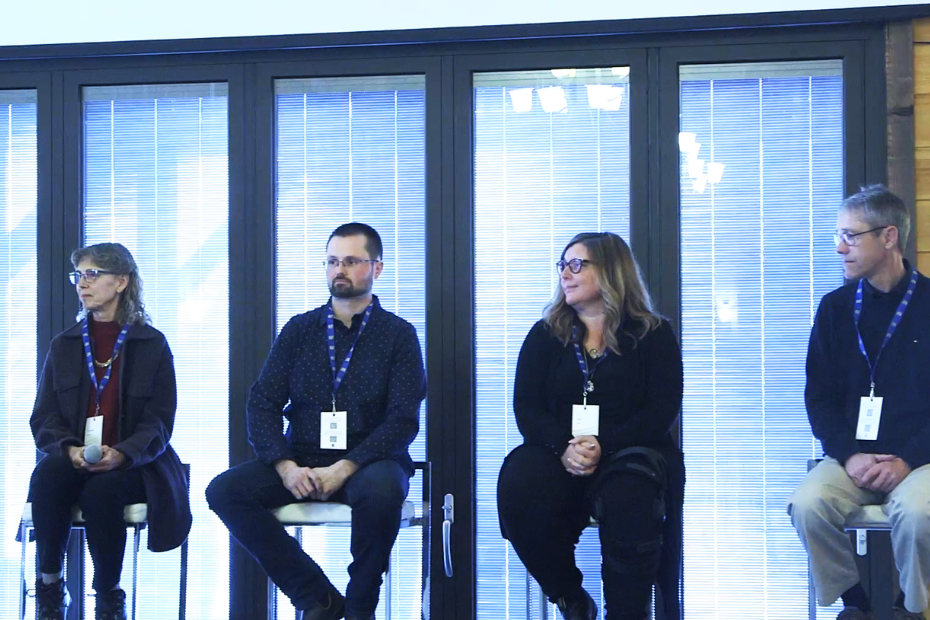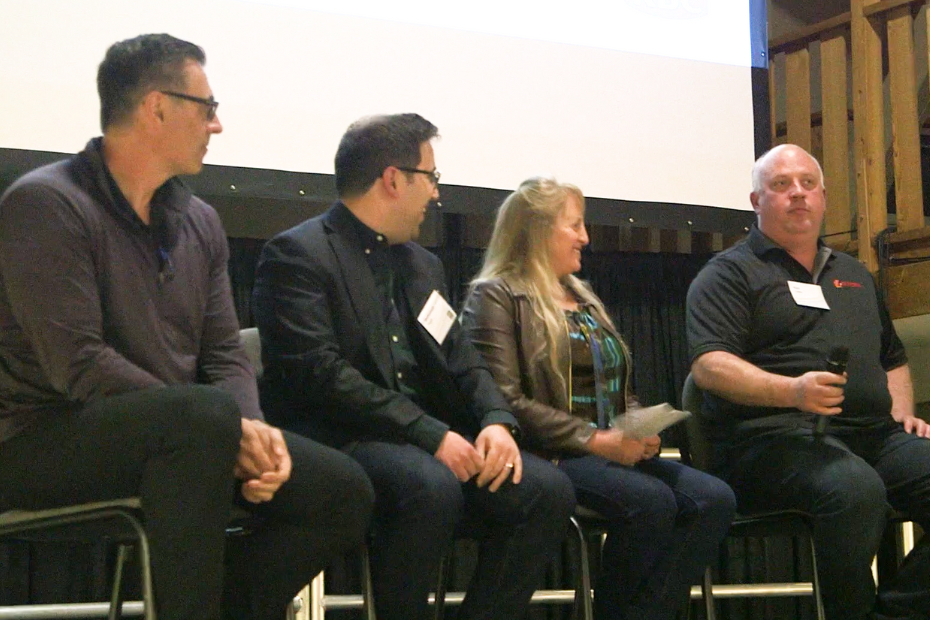Published April 29, 2021 • 6 Min Read
1) Shift the definition of productivity
Pre-pandemic the idea of “working from home” was often referred to using air quotes. Employers and colleagues alike questioned just how productive a worker could be while sitting in their backyard, kids and dog underfoot. Since a great many of Canadians shifted to remote work, however, the air quotes have lifted and ADP research reveals that 40 percent of managers and employers have said that productivity while at home has matched workplace output – some have even said it’s increased. But as Bird says, there are different notions of what productivity really means. While at the office, employees’ administrative productivity can be tracked – sending emails, attending meetings, stepping out here, going there… In remote work, this same mapping doesn’t exist – but that shouldn’t be the measure of productivity. “Through this remote moment in our work/life history, we are beginning to realize a certain thing about quality,” says Bird. “We want to start focusing on the value we’re contributing, not necessarily the abundance. A lot of us get caught up in producing abundance versus creating value. Changing this mindset will be helpful,” she says. She also highlights that the 9 – 5 formal workday is gone. As people try to balance personal commitments, lifestyle, stress and work, the day has become more fluid – and managers ought to accept the flexibility that people require. “If people can be just as productive opening their laptops at 10:00 am, and be engaged with their team, and doing what they need to do, it’s hard to be critical of that,” she says.2) Uphold personal connections
Even for those who have returned to work, there are forced open spaces between people and a lack of physical contact. Yet as Bird acknowledges, humans have a very real need for human connection – both physical and emotional. “Humans are social animals and we thrive in the company of others,” she says. “Where we get to feel part of a community, where we can exchange stories and knowledge, where we can contribute to a shared purpose. For those of us working from home, we currently don’t have this contact with our colleagues.” In the podcast, Haslam emphasizes the need to continuously work on keeping strong personal connections within one’s team, citing the impact a phone call can make. “People sincerely appreciate personal interest and an occasional touchpoint,” she says. From an employer/employee relationship perspective, Bird highlights the need to create new rituals – such as establishing a set time during the week for a one-on-one, emphasizing that this needs to be a structured, programmatic meeting – not a haphazard event. She adds that managers should make a concerted effort to get contributions from each team member while on a group call. “Some may not be comfortable speaking up in a meeting, but they may not be averse if the expectation is set in advance that you’ll be going around the table, getting input and sharing ideas. This is how managers can learn to be more inclusive in terms of how they manage their teams.”3 )Treat each other as humans
During the roller coaster of uncertainty that Canadians continue to ride, Bird suggests we lean into our humanity to support each other. If you’re a manager, she recommends acknowledging where you are as a fellow human and exercise a respectful openness about how you’re coping through challenging times. She also believes employers should do what they can to make employees feel comfortable bringing their whole selves to work – recognizing that may involve children on a zoom call or a barking dog in the background. “Asking your employee ‘how are you really doing’ goes a long way in establishing an authentic connection and business owners will be expected to provide this kind of support in our new working world. It’s very evident that if you treat people like human beings, you’re going to have much better innovation and productivity, and the job is going to be much more enjoyable for everyone.” And while showing humanity and vulnerability may not have been in a manager’s toolkit in the past, Bird says it’s going to be a must-have going forward. The mindset of the manager must shift from “I” to “we” – I work with you, you don’t work for me.4) Prioritize self-care
According to one ADP study, 38 percent of managers believe stress levels have increased when it comes to remote work – and while many Canadians feel well-supported in their workplaces when it comes to technology. In the podcast Haslam acknowledges there is a gap around mental health. She encourages team members to share tips and tricks around exercise, walks, coffee breaks and more. “I would really encourage you and your team members to choose a day in the next few weeks just to take time off to recharge. I know personally I’m way better at work when I look after myself outside of work – my productivity may even be higher for the rest of the week.” Bird reiterates the need for self-care in the context of the day-to-day routine. “Many people benefit from having their time organized in such a way as there are markings in their day. People should be able to stand up after sitting for a couple of hours, get fresh air and a cup of coffee. If you have employees who are constantly on zoom calls, you can’t imagine that they’ll be able to rise up to give you their best effort.”5) Give permission to voice boundaries
As a return to the physical workplace eventually picks up steam, the physical aspects of work – handshakes, pats on the back, close boardroom seating – may cause some anxiety among employees. Comfort levels are sure to differ, and some awkwardness may surface. When asked about this, Bird considered it an emergent question, the answers to which will unfold as people begin to return. “One of the things to consider is how we treat those around us,” she says. “There is a hope that people will be respectful and somewhat in the same situation relative to the way we need to behave when we’re back in a physical space. I would say that it’s OK to express your boundaries as an individual – and it’s important to have the permission to do that.”Bottom Line
While the future of work is here, it is constantly evolving, and the environment is ever-shifting. While employers can’t predict what’s coming next, building trust, leading with empathy and prioritizing self-care will help keep teams engaged, productive and happy – whether individuals are physically together or connecting from home for a while.Find out more about ADP.
This article is intended as general information only and is not to be relied upon as constituting legal, financial or other professional advice. A professional advisor should be consulted regarding your specific situation. Information presented is believed to be factual and up-to-date but we do not guarantee its accuracy and it should not be regarded as a complete analysis of the subjects discussed. All expressions of opinion reflect the judgment of the authors as of the date of publication and are subject to change. No endorsement of any third parties or their advice, opinions, information, products or services is expressly given or implied by Royal Bank of Canada or any of its affiliates.
Share This Article






